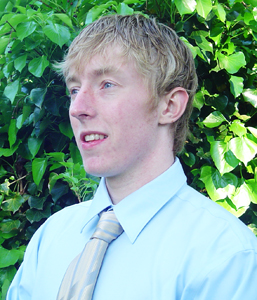 Jason has worked with me for 5 years, and has an inspirational story. I’m going to let him tell it.
Jason has worked with me for 5 years, and has an inspirational story. I’m going to let him tell it.
Where did you grow up?
I grew up in Clementon, NJ with my Dad. Those years were, hands down, some of the best memories of my life. I was outside every day running around in the woods, playing basketball, or stirring up trouble with some of my friends.
What sports were you interested in/did you play as a kid?
Growing up, the two main sports I played were baseball and basketball. As much as I love baseball today, basketball was always my favorite sport. When I was in the 6th grade, all 5′ 2″ of me was certain I would play in the NBA.
Were other members of your family athletic, and did they support you in your athletic endeavors?
My brother Dennis was the stand-out athlete in our family. He was a very good pitcher from northeast Philly who at one point in his career was invited to an open workout held by the Florida Marlins. All of my family has been super supportive of my athletic endeavors, especially my dad. He would be at all of my basketball and baseball games when I was growing up. During my college years, he came to as many cross country and track and field meets as he could. When I picked up the sport of triathlon, he was there for every single one of my races.
When did you first realize you had polycystic kidney disease (PKD)?
It was the summer before my freshman year in high school. I did what most teenage boys do now and again and got in a little fight. During the fight, I got kicked in the side but did not think much about it. A few days later, I complained to my dad that I had some pain in my side. At the time I did not know it, but because my dad also has PKD, he knew right away that most likely I had PKD and had ruptured a cyst on one of my kidneys. I was admitted to the hospital for tests, and a CT scan confirmed that I had the disease.
How did the diagnosis of PKD impact your life in general, and your athletic training in particular?
At the time of my diagnosis, I was really too young for it to get me down. My dad told me to live my life but take it easy with the roughhousing with friends or doing stuff like wrestling and boxing. All in all, I lived a normal life. A few times I would pop a cyst and be on bed rest for a few days. That was never fun, because the pain is like someone stabbing you constantly in the back. I had to take a few blood pressure medications due to the disease and the doses got heavier when I was a little older and in college, despite running competitively and taking on the sport of triathlon. Around age 22 or 23, the disease began to progress a bit more quickly, and I started to notice the effects on my training.
You received a kidney transplant in 2009 with a donor kidney from your good friend, Nick DeSantis. How bad had things gotten by then, and how did it come about that Nick donated a kidney to you?
Things were pretty bad at the time Nick let me know that he was a match and going to donate his kidney to me. At that point, I was on dialysis three times a week for 4 hours at a time. I had four surgeries, including emergency surgery to remove a piece of my intestine that had closed off due to complications from the first kidney surgery. They had to install a colostomy bag and they said I was very lucky to live. This is when I started dialysis as well. Dialysis was tough, because it was not only physically draining, it was also mentally draining. I’d have to say it was more mentally draining, because I was spending a lot of time around people who were chronically ill. When you are in your early 20’s, you still feel invincible. Seeing the basic frailty of the human body staring you in the face like that, day after day, can be really scary. You see some people who didn’t take care of themselves properly, but you also see the others who did everything right. You wonder if you are going to end up the same way, no matter how hard you try.
The doctors wanted me to start looking for donors in late 2007. They would not be able to test for a donor match at that point, but they knew it was only a matter of time. As soon as my kidney function had dropped past a certain point potential donors were allowed to test. My doctors had never wanted me to be on dialysis, but my kidney function dropped too quickly, so it was necessary for me to be on dialysis to keep me alive until I was able to have the kidney transplant.

